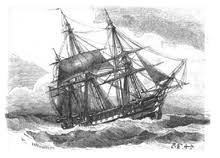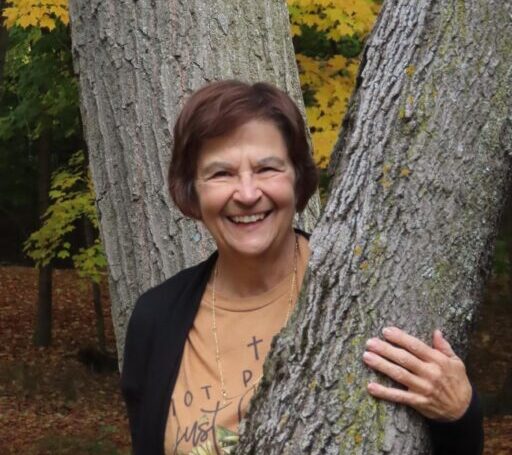There was a summer or two that my brother was offered an actual “bring home pay” kind of hayfield job with a rancher down on Goose Creek. The folks encouraged him to take it to help with college expenses that would be coming up soon. My little sister at this time hadn’t earned her right to passage yet (being able to reach the tractor clutch), which left Dad and me to put up the hay.
Many of the days in the hayfield were carbon copies of the previous day – hot sun, blue skies, bumpy treks across the meadow, and delightful smells of cut hay, meadow flowers, and fresh air. If we would see a blue heron fishing on the creek, or a family of grouse rising off the meadow, or a beaver slapping his tail along the creek bank, it was a bonus. These events were notable for us, but not deeply branded into our memories.
There was, however, one sultry July day that presented a rather anomalous event that I remember clearly. There was barely a breeze and the air hung heavy with humidity. The deerflies were out in hordes; coming after me from all directions. I noticed Dad, across the meadow, swatting at them with his old straw hat. I did the best I could with my bare hand, sometimes leaving bloody blebs on my arms.
That day, I was in charge of raking up the scatterings of small bunches of hay that had escaped the teeth of the side delivery rake and of Dad’s front loader sweep. Once I had the scatterings arranged in a windrow, Dad would again maneuver the front loader down the hay row, picking up the scatterings and depositing them onto the stack he was making.
By mid afternoon, Dad, satisfied with the stack he had just finished, waved me towards the pickup. I was more than ready to take a break and leave the pesky deerflies to find some other poor victim. “Let’s go to the house and have a piece of that chocolate cake your mom made before we tackle the next stack,” Dad hollered over the noise of our tractors.
Afternoon breaks usually lasted about twenty minutes – but occasionally longer. It often depended on whether Dad had an inclination to stretch out on the carpeted floor “for a few minutes” after making his stomach happy. This particular day, a few big sprinkles began hitting the kitchen window as we devoured our cake and lemonade. I could see the treetops swaying some now as I looked through that same window. Good! The deerflies wouldn’t be as prevalent when we went back.
“Let’s see what happens with this weather,” Dad said as he lowered himself to the floor and stretched out in front of the box fan. The sprinkles didn’t last long, but Dad’s nap lingered. That was okay by me – the novelty of the hayfield had worn off some time ago.
I refilled our silver thermos with ice and water and then picked up the book I’d been reading to pass the time until Dad awoke. Before I finished the chapter we were headed back out the door to the truck. As we turned onto the meadow, we noticed alarming changes. The first thing that got Dad’s attention was that the three haystacks he had constructed earlier had vanished – not a trace of them anywhere. While Dad was pining the loss of his stacks, I was noticing the large cottonwood tree lying on its side beside the creek. “Look,” I pointed to the tree. “What happened?”
“Must have had a little twister come through.”
I was stunned we hadn’t known anything of it while we were at the house. But then, I remembered the noisy fan, Dad was sleeping, and I was absorbed in a book. It was possible, I supposed.
“Why did it knock that tree over and none of the others?” I said, pointing to the grove of trees that lined the road.
“I imagine it’s because that tree didn’t have a strong root system. Because it sat next to the creek, it’s roots didn’t have to go far to search for water.”
I have learned since that many things determine the length of tree roots, but nothing more than the soil conditions they are placed in. Dad was exactly right. Under general conditions, tree roots extend about 1.5 times the height of the tree and most are in the top foot of soil. There is a Banyan tree in the Botanical Gardens in Calcutta that far exceeds this “normal.” It’s root system spans out over three acres.
The Bible compares a man that trusts in the Lord as having roots like a tree. (Jeremiah 17:7-8.) As he trusts in the Lord, that man is not bothered by the storms of life just as the trees that lined our road were not bothered by the twister. Louisa May Alcott said it this way: I am not afraid of storms for I am learning how to sail my ship.
It is my hope that we may all learn how to sail our ships with a little more confidence, even if it’s stroke by stroke.
Until next month, keep on readin’ and I’ll keep on writin’.

‘

Kate
What a great story with a great message! I love to be “taken back” to some good ole days’ memories, and I especially love this story with a lesson for us all! Thanks for some uplifting and encouraging thoughts to help us thru the storms of life!
Cathy
Enjoyed your article very much. Keep it up.
delilalumbardy@gmail.com
Thank-you!